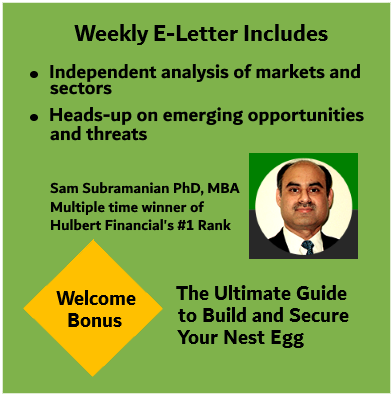Competition in the online trading space has been heating up. In the closing months of 2009, Charles Schwab (SCHW) cut commissions to $8.95 per trade of stock or non-Schwab exchange-traded fund (ETF). Schwab has also allowed commission free trading of its eight in-house ETFs.
Responding to Schwab’s move, Fidelity Investments has replaced its tiered commission structure ranging from as high as $19.95 a trade with a flat $7.95 rate. Fidelity has also announced that its customers can trade 25 ETFs commission free.
Fidelity has partnered with BlackRock (BLK), the manager of iShares ETFs, to offer commission free trading on 25 iShares ETFs. Fidelity will receive a fixed amount from BlackRock to cover certain expenses.
iShares ETFs Available at Fidelity InvestmentsThe lineup of commission-free ETFs includes several popular U. S. stock, foreign stock, and bond ETFs and increases the range of indexed products available to Fidelity customers. The assets invested in these ETFs tally nearly $200 billion. Here is the list:
for Commission Free Trading
U. S. Stock ETFsLarge-Cap
Mid-Cap and Small-Cap
|
Foreign Stock ETFsWorld
Developed Markets
Emerging Markets
Bond ETFsTotal Bond Market
Inflation Protected Bonds
High-Grade Corporate
Emerging Markets
Tax Exempt
|
Should You Jump Ship from Fidelity Index funds to iShares ETFs?
No, not really. The cost advantages provided by ETFs vis-à-vis Fidelity index mutual funds like Spartan 500 (FUSEX), Spartan Total Market (FSTMX), Spartan International Index (FSIIX) or Fidelity U. S. Bond Index (FBIDX) mutual funds is not significant enough to make a change without weighing tax consequences.
How Can You Use Free ETF Trading to Your Advantage?
Commission free ETFs are asset allocation investments that are suitable for building core portfolios with exposure to a broad range of asset classes. The elimination of commissions makes these ETFs suitable for buy-and-hold or dollar-cost averaging. If you are starting fresh or have cash that you can use for building a diversified portfolio, the ETF option can look appealing.
Position yourself for more commission free ETFs likely to follow. Given the intense competition among ETFs for assets, it is conceivable that other ETF sponsors like State Street (STT) will seek to enter into partnerships with brokerage firms and make their ETFs available to investors on a commission-free basis. Like Schwab, Vanguard Group has the option of waiving commission on in-house ETFs for Vanguard Brokerage Services customers. Such developments can widen the range of ETFs you can use for building your portfolio.
How Can You Profit from Consolidation in Online Brokerage Firms?
The intensity in competition among online stock brokers is picking up at a time when industry conditions are challenging. This may well accelerate consolidation in the online trading space.
Speculation on E*Trade’s (ETFC) takeover has reared many times given the firm’s weak finances. This rumor may well become reality soon if TD Ameritrade (AMTD) or Schwab makes an offer. If you want to plunk some money into low-priced E*Trade shares with the hope of making a quick buck, do so … but only with the money you can afford to lose.

 Sick buying high & selling low? Fed up of the fees you pay? Tired researching investments? End your financial pain now. You have the opportunity to
Sick buying high & selling low? Fed up of the fees you pay? Tired researching investments? End your financial pain now. You have the opportunity to 

 DEC. 1993 to DEC. 2023
DEC. 1993 to DEC. 2023





